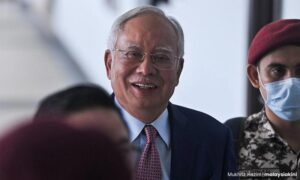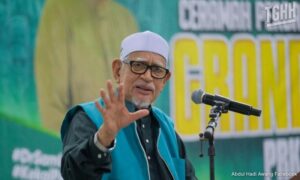By Nawar Firdaws

Parliamentary privilege that protects lawmakers from criminal and civil liability for what they say inside the Dewan Rakyat extends to offences under the Official Secrets Act (OSA), said legal experts.
Hence, police may have no grounds to act against former deputy prime minister Muhyiddin Yassin, former rural and regional development minister Mohd Shafie Apdal, and former second finance minister Ahmad Husni Hanadzlah.
The three are currently under investigation for allegedly breaking their oath of secrecy and breaching provisions under the OSA, for speaking on issues which they learnt of while in their respective ministerial posts.
“MPs and state assemblymembers are protected under what is known as parliamentary privileges,” civil liberties lawyer Syahredzan Johan told FMT, in reference to Article 63(2) of the Federal Constitution.
“Here, they can raise issues in Parliament and the state legislative assembly without the risk of legal action.
“They (Muhyiddin, Shafie, and Husni) may have revealed some matters which were discussed in the Cabinet but that is more of an ethical offence, not a legal offence.”
The parliamentary immunity, however, does not extend to offences involving sedition, said Syahredzan, saying that this was one of the exceptions to the rule.
“So if an MP says something which is seditious, then he or she can be charged under the Sedition Act 1948 although it was said in Parliament.
“But I cannot see how what they (the three former Cabinet ministers) said was even remotely seditious.
“You can make the argument that as former ministers they should not have revealed what was discussed in the Cabinet but again, that is not a legal offence.”
The same was echoed by lawyers New Sin Yew and Eric Paulsen who said that legal immunity in Parliament applies to OSA offences, but not the Sedition Act.
“One exception is when a MP is charged with an offence under the Sedition Act 1948, as amended by the Emergency (Essential Powers) Ordinance No. 45, 1970,” said New.
The ordinance in question was the new definition of seditious tendency under Section 3(1)(f) of the Sedition Act, which includes among others, the questioning of Bumiputera special rights or the sovereignty of the Malay rulers, and speeches that can promote the feeling of hostility between the country’s different races.
Paulsen, the executive director of Lawyers for Liberty told FMT that the oath of secrecy carried no legal effect as it is not legally binding.
“Oath of secrecy does not apply when it comes to criminality such as grand corruption, as had allegedly taken place in 1MDB.”
Muhyiddin was said to have revealed classified information on government-owned 1MDB while speaking at the Budget 2017 debate in the Dewan Rakyat.
The information, said Muhyiddin, was made available to him while he still held the post of deputy prime minister.
Shafie too, had questioned several government decisions on 1MDB, while Husni had reportedly said the country could still face economic repercussions if the 1MDB issue was not properly handled.



